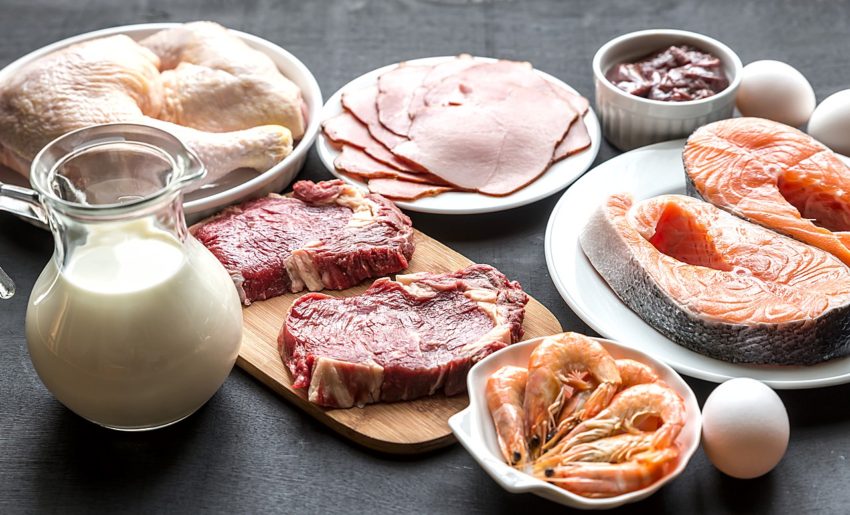I frequently see the topic of l-glutamine come up in online discussions. Most of the internet advice is to avoid this very important amino acid. I don’t think this is wise.
L-glutamine is by far the most abundant free amino acid in the body. It is called a “non-essential” amino acid because our bodies can manufacturer it, we do not have to consume it to survive. It is also known as “conditionally essential” as our bodies basically make enough for survival, not for optimal health. For that we need to obtain more from food. By depriving ourselves of l-glutamine in our diet we put a lot of stress on our bodies to produce it; just so the greedy cancer cells can gobble up what little we’re making. Glutamine makes up over 60 percent of the skeletal muscle tissue and anything that damages muscle can lead to a glutamine insufficiency if it is not replaced up by proper diet (high in protein).
Glutamine is contained in a wide variety of foods, especially meats and seafood, but also foods such as cabbage, asparagus, broccoli, etc. Because it is found in both plant and animal proteins and it would be very difficult (and very unhealthy) to fashion a diet devoid of glutamine.
|
|
Amino acids are critical to good health and l-glutamine is no exception. Here are just a few of the benefits of dietary l-glutamine.
- Helps regulate cell growth and function
- Supports gut barrier function and thus improves gut health. A health gut is a key requirement to a healthy immune system.
- Normalizes the TH2 immune response that stimulates inflammatory cytokines
- Insufficiency has been linked to several brain disorders, including anxiety and depression
- Helps our bodies burn fat, improves metabolic syndrome, and improves diabetes markers
- Promotes muscle growth – it is often taken by body builders after a workout
“During severe metabolic stress (i.e., trauma, sepsis, major surgery, bone marrow transplant, chemotherapy and radiotherapy), glutamine stores are depleted… Glutamine supplementation during illness increases gut barrier and lymphocyte function and preserves lean body mass… In surgical or cancer patients, glutamine supplementation decreases the production of some pro-inflammatory cytokines” #1
“As a consequence of progressive tumor growth, host glutamine depletion develops and becomes a hallmark. This glutamine depletion occurs in part because the tumor behaves as a “glutamine trap” but also because of cytokine-mediated alterations in glutamine metabolism in host tissues. Animal and human studies that have investigated the use of glutamine-supplemented nutrition in the host with cancer suggest that pharmacologic doses of dietary glutamine may be beneficial.” #2
It is true that L-glutamine is needed by some cancer cells for growth. However, tumors actually need very little and it has been shown in vivo (in the body) that restricting l-glutamine intake does not slow cancer progression. This is because within in the body (unlike in vitro) tumors can obtain l-glutamine from endogenous sources (other cells in the body can make l-glutamine).
“In models of ovarian cancer and prostate cancer, it was shown that cancer-associated fibroblasts (CAFs) can synthesize glutamine de novo and secrete glutamine to support tumor cell growth in a glutamine-limiting environment [56,57]. In addition to stromal cells, macrophages in the tumor environment can contribute to tumor progression through glutamine synthesis… tumor cells can use other amino acids to mitigate the stress caused by glutamine limitation” #2
Pharmaceutical companies are investigate cancer’s use of glutamine. But they are looking at ways to block cancer’s ability to take up glutamine, not to restrict our normal cells from getting it. But they will also have to come up with adjuvant treatments to prevent the tumor cells from utilizing other amino acids as substitutes, otherwise blocking glutamine utilization will do no good.
It seems clear from the evidence that glutamine restriction is not a good idea, whether a person has cancer or not. I just beat a very aggressive form of cancer, nodular melanoma. I did not restrict l-glutamine; in fact my diet was high in l-glutamine foods and still is. My recommendation is that if you have recently had chemotherapy or radiation therapy you may want to consider taking an l-glutamine supplement, both of these therapies can cause muscle damage, which can deplete l-glutamine. This is especially true for people on vegan and vegetarian diets. Otherwise just make sure you eat a good diet with proper levels of proteins, especially those on the list above.

